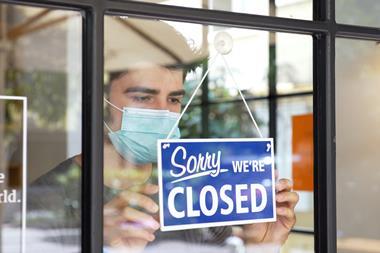The potential for ”unintended consequences” is high and more vigilance is needed
In the context of the strategic change affecting the health and care system as Integrated Care Systems (ICSs) are established, is risk getting the attention it deserves?
How might quality oversight be directly affected systemically and organisationally, as system working becomes more embedded?
These are questions posed by a new paper in the BMJ, authored by Catherine Harrison, policy advisor at NHS Providers, as ICSs in the UK prepare for statutory status in July 2022, delayed from April.
”There has been a growing understanding over these past years that in such deeply complex and dynamic conditions as those faced in healthcare, there are times when no one knows the answers,” she writes.
“It’s so often been the relationships between trust leaders, their staff and patients that has helped map a way through. Adaption and innovation for the benefit of patients has relied on the ability to collaborate and openly communicate on risk identification, management, and problem-solving.”
”Risk management is core to good governance so locally and nationally, we shouldn’t shy away from constructive challenge in the name of achieving consensus—now is the time for constructive conversations to help navigate through expected and unexpected challenges,” she continues.
In particular, Harrison argues there needs to be more attention on the following three areas:
- The need for robust risk frameworks that meet the needs of all healthcare sectors. All sectors should be engaged to help develop robust frameworks that account for different circumstances and needs, while still providing important scope for local ownership and adaptation.
- System Quality Groups (SQGs) provide an important forum to identify risks as well as opportunities. However, even these may reach the boundaries of what’s possible to address in the system itself without government support and national funding. For example, current pressures on the urgent and emergency care pathway, and in mental health and community services require a “whole system” response involving local and national partners.
- There are currently no published quality impact assessments relating to the new guidance emerging. Likewise, safety considerations are rarely given centre stage in the narrative.
”The potential for unintended consequences in a system as complex as healthcare is always high and vigilance is needed from all levels,” writes Harrison. “Few would argue there is frequently an obvious, clear, ‘right’ way through many of the challenges we face when balancing aspirations, outcomes, cost and impact.”
”COVID-19 shows us regularly that we are collectively planning in the face of uncertainty,” she continues. ”If we do so without considering in what ways may we be wrong, by how much, and what can be the outcome of that, then there is only greater risk.”
”During a time of such significant transition and challenge, risk—and its spread across to all aspects of quality of care—should be transparently high on our agenda,” concludes Harrison. “This should be supported by a strong, consistent voice on quality in all health and care bodies, nationally, regionally, and locally, heard and voiced clearly through interactions with the frontline and at every level of the system.”




















No comments yet